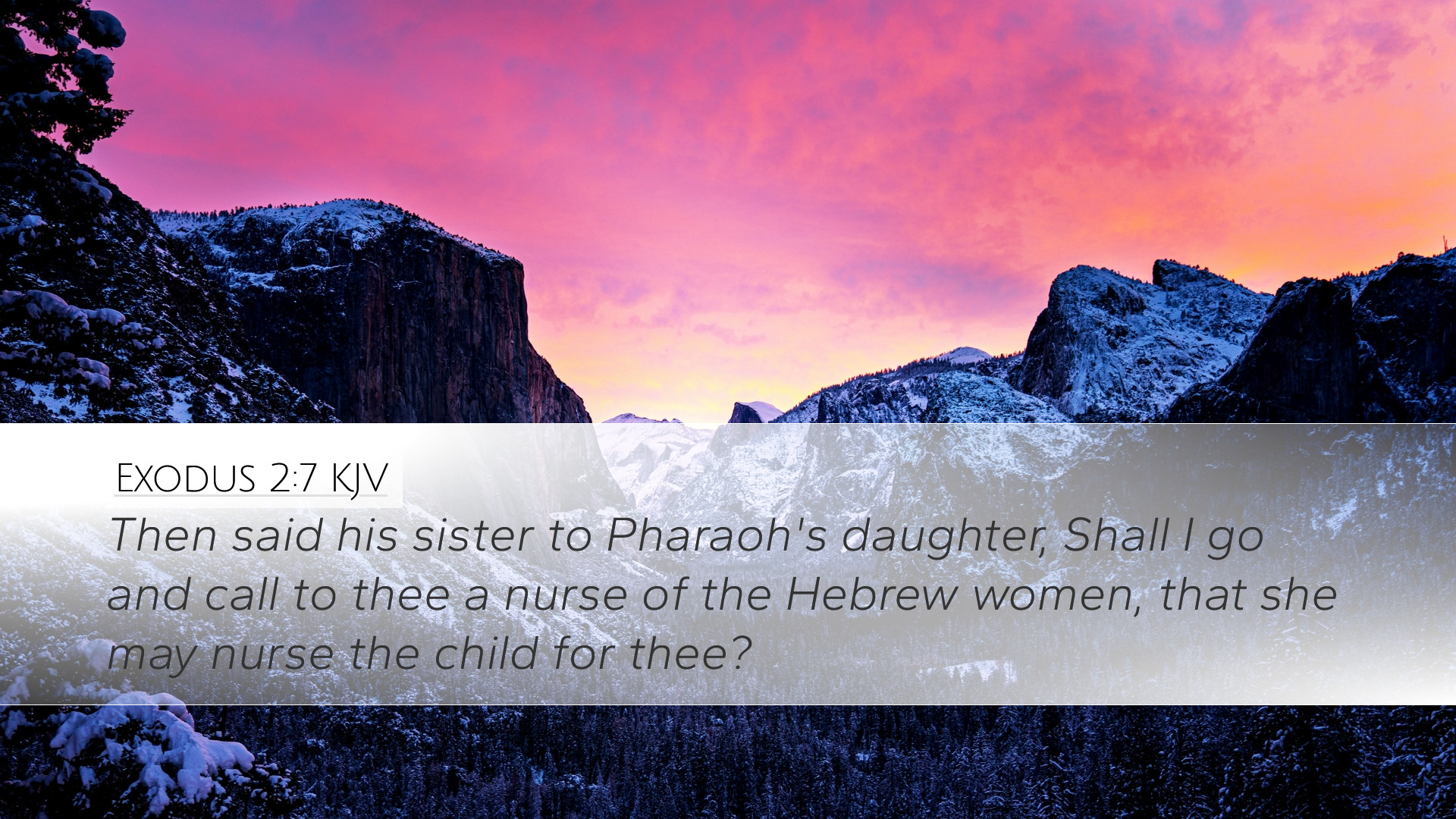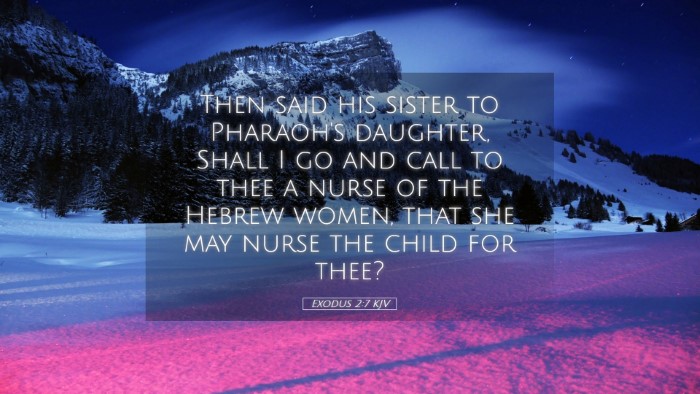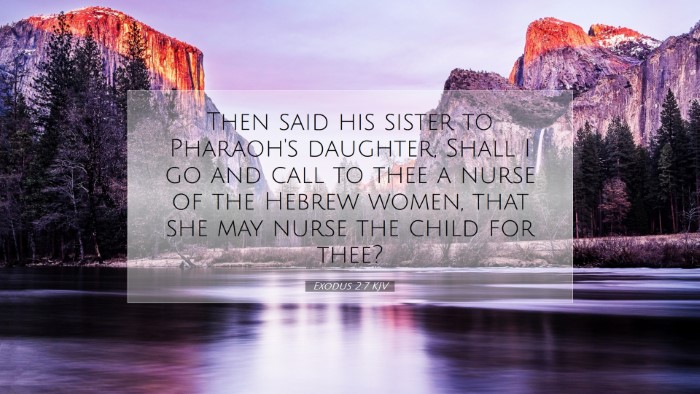Commentary on Exodus 2:7
Verse Context: Exodus 2:7 states, “Then said his sister to Pharaoh's daughter, Shall I go and call to thee a nurse of the Hebrew women, that she may nurse the child for thee?” This verse occurs in a pivotal moment of Moses' early life, blending themes of divine providence, maternal care, and the beginnings of the Exodus narrative.
Overview
This verse marks the interaction between Moses' sister, Miriam, and Pharaoh’s daughter, illustrating both the providential care for Moses and the foreshadowing of Israel’s deliverance. Commentators emphasize the shrewdness of Miriam in her proposal and the underlying divine orchestration evident in this encounter.
Insights from Public Domain Commentaries
Matthew Henry’s Commentary
Matthew Henry highlights the wisdom and bravery of Miriam in approaching Pharaoh’s daughter. She acts without hesitation, recognizing the opportunity presented to her by God’s providence. Henry notes that this encounter illustrates how God often uses the simplest means for His greatest purposes:
- Bravery of Miriam: Henry points out Miriam's courage in potentially dangerous circumstances, implying her faith and intelligence.
- Divine Providence: The author states that God prepares the way for His chosen ones even from their infancy, exemplified in this moment where a caring Hebrew mother can nurse her own child under the guise of service to Pharaoh’s household.
- Nurturing Environment: The verse suggests that nurturing has a significant role in God's plan, emphasizing that earthly caregivers are divinely appointed in scenarios of spiritual significance.
Albert Barnes’ Notes on the Bible
Albert Barnes elaborates on the subtleties within the text, considering Miriam’s proposal a blend of both cleverness and divine prompting. He suggests that this event conveys essential theological points:
- Kinsmanship: Barnes emphasizes the importance of family ties in the narrative and the role of kin in God's plan, showcasing the family dynamics that are deeply rooted in the biblical story.
- Strange Providence: He reflects on how God orchestrates events in unusual ways, leading to the nursing of Moses by his own mother—an act that links his childhood with his future role as a leader.
- Symbolism of Care: Barnes sees the nursing (both physical and spiritual) as an act of establishing the future deliverer amid adversity, indicative of God’s mercy.
Adam Clarke’s Commentary
Adam Clarke delves into the practical and mystical aspects of the text. He views it as a fascinating interplay of human initiative and divine will:
- Miriam's Role: Clarke comments on the significance of Miriam as a figure of wisdom and faith, presenting her suggestions as divinely inspired and indicative of her understanding of the situation.
- Paradox of Power: He notes the paradox in which the children of Israel are placed in vulnerability yet are empowered through the very family ties that threaten their existence.
- Theme of Deliverance: Clarke sees this instance as an early indication of deliverance themes that later unfold in the narrative of Exodus, showcasing God's strategic oversight in the plight of His people.
Theological Implications
As we analyze Exodus 2:7, several key theological themes emerge:
- God’s Sovereignty: The orchestrated meeting between Miriam and Pharaoh's daughter illustrates God’s sovereignty even in perilous times, showing how He uses ordinary situations for extraordinary outcomes.
- Human Agency: This verse exemplifies how humans play an integral role in God's plans—through wisdom, bravery, and initiative, as seen in Miriam’s actions.
- Mother’s Influence: The nurturing role of a mother is paramount, reinforcing the idea that God often works through familial structures to fulfill His divine purposes.
Conclusion
Exodus 2:7 serves as a profound moment in the biblical narrative, offering rich insights into the themes of providence, family, and divine deliverance. The commentaries by Matthew Henry, Albert Barnes, and Adam Clarke provide multiple layers of understanding, encouraging readers to reflect on the complexities of the human experience in relation to God's overarching plan. Pastors, students, theologians, and scholars alike are urged to contemplate how this narrative resonates in contemporary contexts, highlighting the continued relevance of Scripture in discerning God's intricate and often mysterious methods of salvation.


